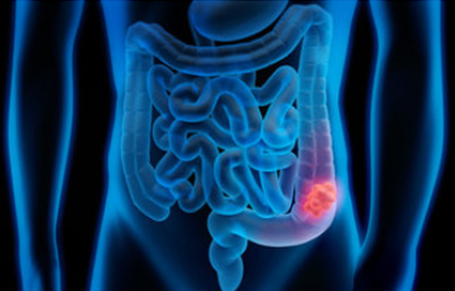Crohn's Disease: Exhausted Cells Offer Approach for New Diagnostics

T cells play a major role in the intestinal Crohn's disease / Researchers from Freiburg show that certain T cells are "exhausted" / Connection with severe course / Possible approach for new diagnostics or therapy.
Severe abdominal cramps, diarrhea and vomiting - often for weeks: These are typical symptoms of Crohn's disease, a chronic inflammatory bowel disease. The number of people affected has been increasing significantly for years. Researchers assume that it is an autoimmune disease in which so-called T cells play an important role. Now, doctors and scientists at the Medical Center - University of Freiburg have been able to find a type of killer T-cell in patients that can assume a state of exhaustion during acute inflammation and is associated with a less aggressive disease. A lack of exhaustion was associated with a more severe course. The researchers published their findings in the journal Gastroenterology on June 20, 2022.
"Crohn's disease often progresses in episodes. The course and treatment of Crohn's disease varies greatly from patient to patient. Our approach provides an important step toward personalized therapy of Crohn's disease. Based on our findings, diagnostic procedures could be developed that indicate a severe course at an early stage. These cells may also be suitable for a therapeutic approach," states Prof. Dr. Dr. Bertram Bengsch, head of the research group at the Department of Internal Medicine II at the Medical Center - University of Freiburg and member of the Collaborative Research Center 1160 IMPATH at the University of Freiburg. The Freiburg researchers examined the tissue of 58 patients using single-cell analysis. "Because there are very few cells of this type in the blood, the depletion of these cells had not been detected until now. By characterizing the cells now, we can look for them much more easily in the future - in a blood sample. This should make diagnostics much easier," Bengsch says.
As Prof. Dr. Peter Hasselblatt, Senior Physician at the Department of Internal Medicine II and Head of the Crohn's Disease and Colitis Outpatient Clinic at the Medical Center - University of Freiburg, adds, "These findings will soon be incorporated into individualized molecular diagnostics for the individual assessment of the disease prognosis of patients with Crohn's disease, which is currently being established at the university hospitals in Baden-Württemberg within the framework of the Centers for Personalized Medicine (ZPM)."
Back